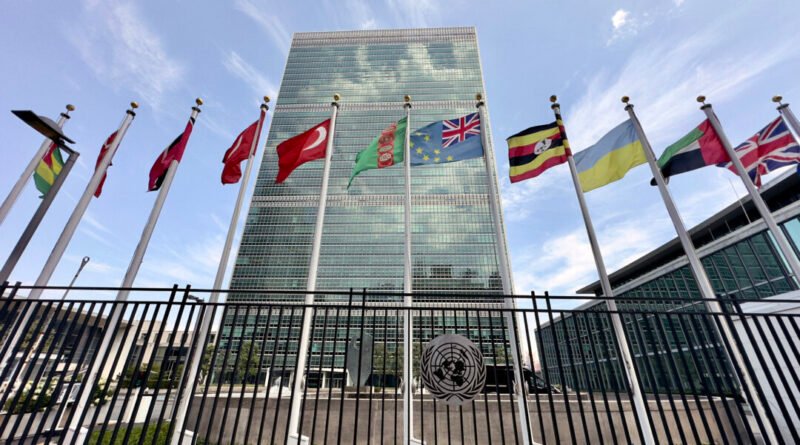The International Press Institute has warned that the upcoming United Nations global cybercrime treaty could enable countries to enhance surveillance powers and impose stricter cybercrime laws to suppress free expression.
A global journalism campaign asserts that the proposed United Nations global cybercrime treaty will grant authorities extensive surveillance capabilities.
On Aug. 6, the
International Press Institute (IPI), a coalition of media professionals advocating for worldwide press freedom, stated that the new global convention supported by Russia, China, and other nations could lead to increased “transnational surveillance and repression.”
Since May 2021, UN member states have been engaged in negotiations for an international treaty to combat cybercrime. The Ad Hoc Committee, the UN body responsible for developing the treaty, is expected to finalize the agreement on the Convention by Aug. 9.
If approved and concluded this week, it would mark the first binding UN measure on a cyber-related issue.
The treaty, initially proposed by Russia in 2017, aims to address cybercrime on a global scale by leveraging existing international, regional, and national tools and initiatives to combat the problem.
However, the IPI warned that it poses a significant risk to “journalists and civil society worldwide.”
Related Stories
EFF expressed concerns that Article 11 (misuse of devices) of the treaty could inadvertently criminalize security research and investigative journalism.
“It may penalize the creation or use of tools for research purposes if the research, such as security testing, falls under other criminal activities,” the EFF stated.
Cybercrime
According to the UN, cybercrime is a form of transnational crime that is evolving, and efforts to combat it support the achievement of the Sustainable Development Goals (SDGs).
It emphasized the need for a binding international treaty to address cybercrime, given its substantial economic impact as a “multi-trillion-dollar business.”
“Illegal activities such as drug and weapon transactions on the dark web, elaborate online scams by fraudsters, and recruitment of supporters and fighters by terrorists are prevalent,” the UN stated.
According to the United Nations University, a global think tank focusing on development and policy research, the treaty will
aim to criminalize “various core cyber-dependent crimes and a few cyber-enabled crimes.”
The treaty also mandates “states to develop digital investigation and enforcement capabilities and to utilize these new powers to address other crimes conducted using computer networks.”
In February, Raman Jit Singh Chima, the Senior International Counsel and Asia Pacific Policy Director for Access Now, a non-governmental organization participating in the treaty negotiations, expressed concerns about the treaty’s scope. He cautioned that political offenses could be included if the treaty is too broad.
“For instance, criticism of a government head or state leader could potentially be considered a violation under cybercrime legislation,” he remarked.
“To ensure trust and confidence in the process, stringent human rights standards must be established when law enforcement agencies collaborate on this treaty,” he added.
The Epoch Times reached out to the UN for comments but did not receive a response at the time of publication.
Source link
TruthUSA
I'm TruthUSA, the author behind TruthUSA News Hub located at https://truthusa.us/. With our One Story at a Time," my aim is to provide you with unbiased and comprehensive news coverage. I dive deep into the latest happenings in the US and global events, and bring you objective stories sourced from reputable sources. My goal is to keep you informed and enlightened, ensuring you have access to the truth. Stay tuned to TruthUSA News Hub to discover the reality behind the headlines and gain a well-rounded perspective on the world.





